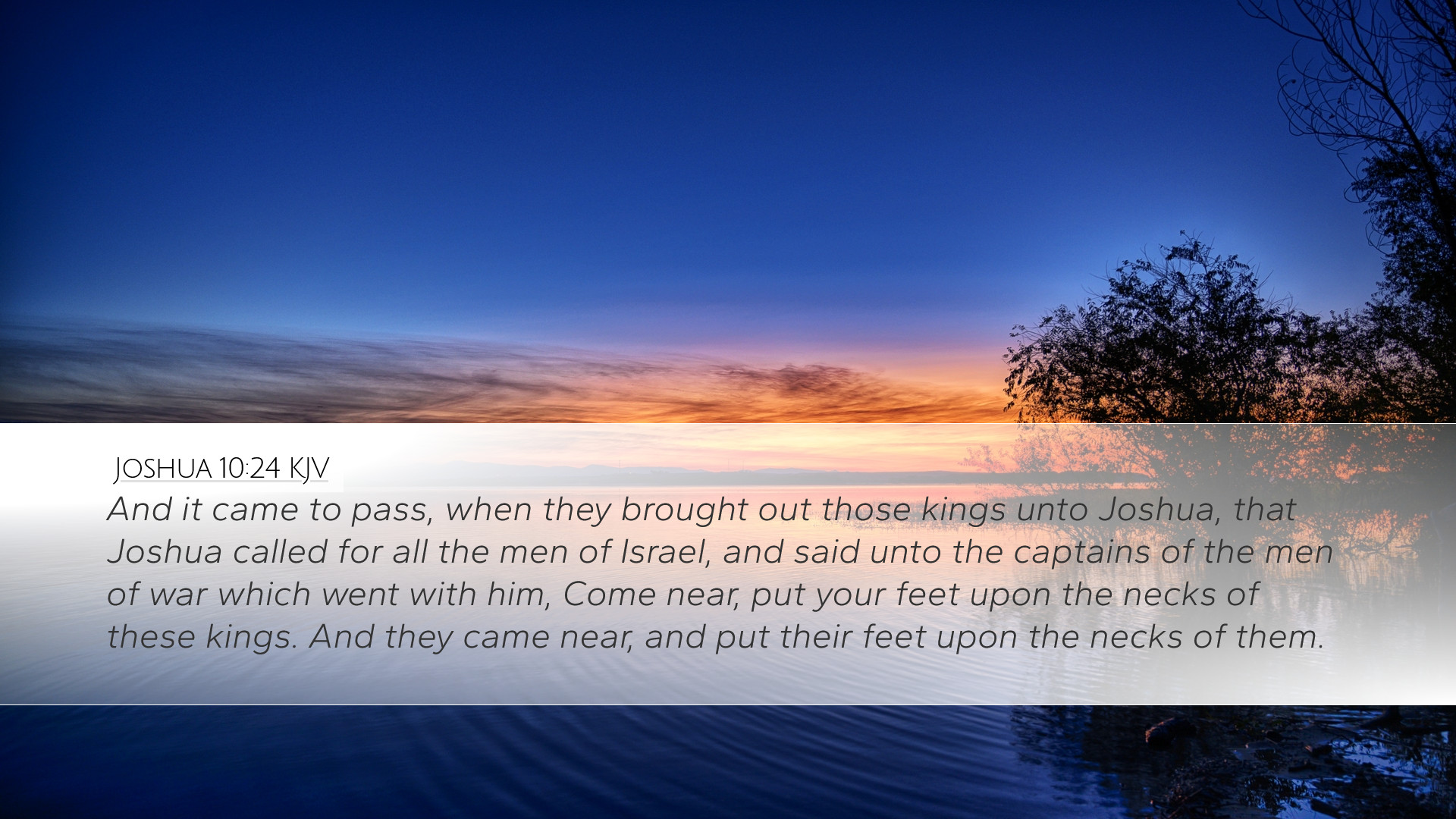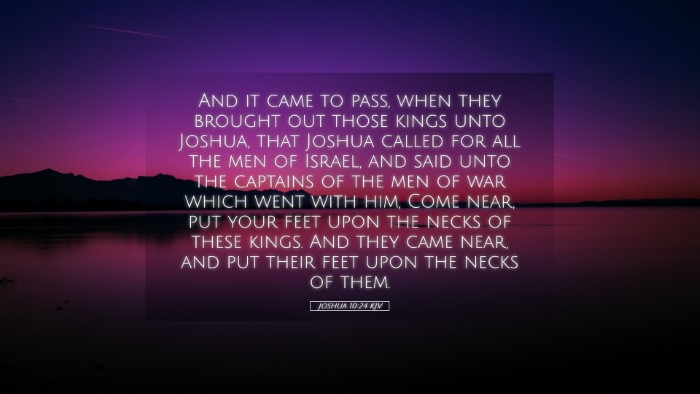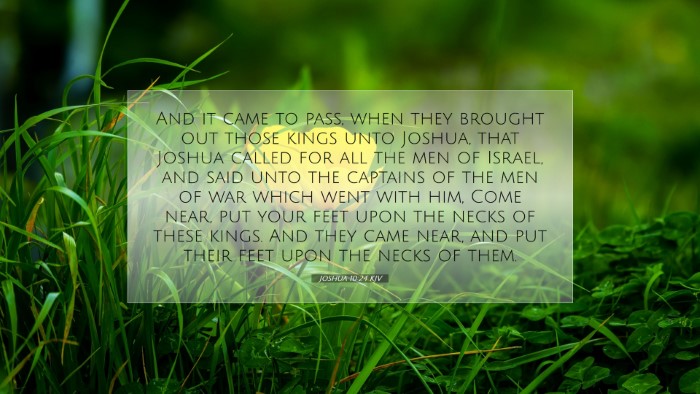Bible Commentary on Joshua 10:24
Text of Joshua 10:24: "And it came to pass, when they brought out those kings unto Joshua, that Joshua called for all the men of Israel, and said unto the captains of the men of war which went with him, Come near, put your feet upon the necks of these kings. And they came near, and put their feet upon the necks of them."
Introduction
This verse marks a significant moment in the conquest of Canaan as Israel demonstrates God's power over its enemies. The act of placing feet upon the necks of kings symbolizes total subjugation and victory over adversaries, serving as a powerful image of divine endorsement in Israel's mission. Insight from various public domain commentaries provides depth to the understanding of this powerful command by Joshua.
Historical Context
Following a series of military campaigns, Joshua and the Israelites faced a coalition of kings opposing their entry into the Promised Land. The context of Joshua 10 indicates a critical phase in the campaign where divine intervention, such as the prolonged day (Joshua 10:12-14), showcased Yahweh’s commitment to His people's cause. The defeat and humiliation of these kings set the tone for Israel's claim over the land.
Analysis of the Text
Divine Authority
Matthew Henry notes that Joshua’s act of calling the captains signifies authoritative leadership, conveying that the success of Israel's military operations stems from God’s authority. The act itself becomes a demonstration of God’s power: these kings, once formidable adversaries, are now humbled before Israel.
Symbolism of the Neck
Albert Barnes emphasizes the symbolic nature of putting feet on the necks of these kings, representing complete dominion. It reflects the biblical principle that God grants victory over enemies. Additionally, this act stands as a prophetic declaration of how God will ultimately deal with the nations opposing His people.
Encouragement for the People
Adam Clarke underlines the instructive purpose of this event for the people of Israel. By witnessing this act, the Israelites were encouraged and reassured of God’s continued presence and support in their conquests. It serves as a reminder that the battles ahead can also be won through faith and reliance on Divine power.
Theological Implications
This moment in Joshua 10:24 offers several theological implications relevant for pastors and theologians:
- God’s Sovereignty: The defeat of the kings attests to God's ultimate authority over all kings and nations. The passage reinforces the doctrine of divine sovereignty in the affairs of men.
- The Nature of Victory: Spiritual victories reflect not only military triumphs but also the internal struggles believers face against sin and temptation. The act of subjugation can be seen as a metaphor for Christians’ victories over life’s challenges.
- Encouragement in Adversity: Just as Joshua encouraged his captains, believers are called to support one another in faith, illustrating the communal aspect of spiritual warfare.
Reflections for Contemporary Application
In contemporary practice, the imagery of placing feet upon the necks of adversaries serves as a potent reminder that believers live victoriously in Christ. Each challenge can be viewed as an opportunity to assert authority through faith:
- Recognizing that trials are allowed for spiritual growth.
- Understanding that victory is secured through reliance on God’s strength and not solely human effort.
- Fostering community support among believers in facing common adversities.
Conclusion
The narrative at Joshua 10:24, enriched by the perspectives of Matthew Henry, Albert Barnes, and Adam Clarke, underscores the powerful themes of authority, victory, and encouragement that can be applied in various contexts today. Ultimately, it serves as a reminder of God's prevailing power in our lives and the assurance that He grants victory to those who march faithfully under His command.


